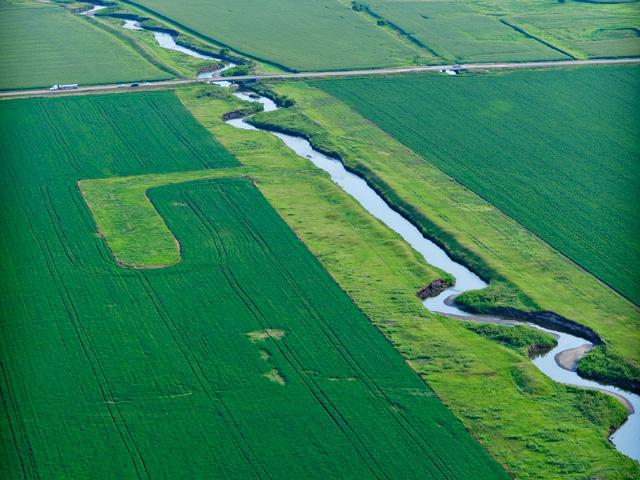Clarity Sought on CWA State Authority
Supreme Court Asked to Clarify Clean Water Act Enforcement Powers
LINCOLN, Neb. (DTN) -- A new Clean Water Act case petitioned to the Supreme Court could determine whether states have the authority to enforce the law on their own terms or must concede that authority when private citizens file CWA lawsuits.
A U.S. district court ruled a CWA enforcement action started by the state of South Carolina against Arabella Farms, a vineyard and orchard mainly marketing itself as a wedding venue, takes precedence over a private-citizen lawsuit later filed.
The state started the enforcement action against the farm for discharging into waters of the U.S. without a permit. The state required the farm to obtain a discharge permit and to pay a $6,000 fine for clearing land near a body of water. Arabella Farms, https://arabellafarm.com/…, allegedly believed the work could be done under an agriculture exemption to the CWA.
Federal penalties for violating the CWA can tally hundreds of thousands of dollars.
Before the two sides could agree to the consent order officially, Arabella received an intent-to-sue letter from environmental group Naturaland Trust and Trout Unlimited over sediment damage caused by Arabella Farms to streams affected by Arabella Farms' unpermitted land-clearing project.
The farm challenged the lawsuit on the grounds that state officials had already launched enforcement action against Arabella, which precludes citizen lawsuits. Though a district court ruled in Arabella's favor, Naturaland appealed to the U.S. Court of Appeals for the Fourth Circuit.
The Fourth Circuit then reversed the district court by ruling that the state's proceeding was not sufficiently "comparable" to the federal enforcement regime in the CWA. The Fourth Circuit also concluded South Carolina regulators had sent Arabella a notice to meet, but "had not yet commenced an action" when Naturaland and Trout Unlimited filed their lawsuit. The appeals court allowed the environmental groups' lawsuit to continue.
The Clean Water Act allows private citizens to sue federal agencies or private parties as it relates to alleged violations of the act.
P[L1] D[0x0] M[300x250] OOP[F] ADUNIT[] T[]
Back in January, Arabella Farms petitioned the Supreme Court to take up their case after a federal appeals court reversed a lower court's ruling.
Since then, the case has drawn the support of attorneys general in 20 states and other parties that filed amicus briefs with the Supreme Court on March 3.
The farm said in its original petition that the Supreme Court should take the case because "over the last several decades, the court of appeals have issued conflicting rules on how 'comparable' a state's law must be to trigger the bar."
The Supreme Court usually hears cases that involve conflicting rulings from different courts on the same issue.
"For example, the First and Eighth Circuits apply a deferential 'overall comparability' test, while the 10th and 11th Circuits employ a stricter 'rough comparability' test, with still other circuits applying variants of the two," Arabella said in its January petition.
"Here, a divided panel of the Fourth Circuit adopted a third and even more demanding standard, according to which the diligent prosecution bar does not preclude citizen suits unless a state's enforcement regime exactly follows the Clean Water Act's administrative penalty provisions and implementing regulations.
"The question presented is: What is the proper test for determining whether the 'diligent prosecution bar' precludes citizen suits?"
The 20 states said in a brief filed with the Supreme Court that states are not "secondary players" when it comes to protecting water.
States filing the brief include West Virginia, South Carolina, Florida, Georgia, Idaho, Iowa, Kentucky, Louisiana, Mississippi, Missouri, Montana, Nebraska, North Dakota, Oklahoma, South Dakota, Tennessee, Texas, Utah, Virginia and Wyoming.
"States have long controlled the management and protection of the environment, land, air and water," the states' brief said.
"The CWA recognizes exactly that -- constructing a cooperative-federalism structure that ensures all sovereigns have a voice. State interests cannot be shunted aside because private-interest groups might take up a particular environmental matter. Citizens are permitted to abate pollution only when the government cannot or will not command compliance."
In an amicus brief filed by the Cato Institute and the Buckeye Institute, the groups said the Fourth Circuit's decision undermines the cooperative federalism promoted by the Clean Water Act.
"Under this 'cooperative federalism' framework, the states and federal government share authority to protect the nation's waters," the groups said.
"Here, the Fourth Circuit determined that South Carolina's enforcement procedures are not comparable to (EPA's) enforcement scheme. As a practical matter, the court's holding offers states a choice: either mimic the federal program, or citizen suits will trump the state's preferred enforcement program."
Todd Neeley can be reached at todd.neeley@dtn.com.
Follow him on Twitter @DTNeeley
(c) Copyright 2023 DTN, LLC. All rights reserved.




